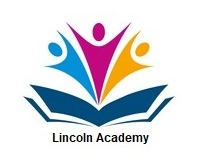Learning
Learning and Inspiration
In our educational approach, we emphasize the significance of being effective learners who actively engage with the learning process. We believe that meaningful questions, rooted in a learner’s experiences and aimed at extending their knowledge, form the foundation of effective learning. This perspective aligns with the constructivist view of human understanding, where new information is integrated into existing cognitive frameworks based on prior experiences.
Furthermore, we stress the importance of metacognition among learners. Metacognitive awareness involves reflecting on one’s own learning processes, understanding individual strengths and weaknesses, and adapting strategies to assimilate new information effectively. As educators, we play a crucial role in making these learning processes transparent, guiding students to comprehend their own learning styles, and encouraging self-reflection for continuous improvement.
Additionally, we advocate for the transfer of learning to diverse contexts, encouraging students to recognize patterns, analyze, synthesize, evaluate, and make connections across various disciplines. This interdisciplinary approach challenges traditional boundaries and fosters critical thinking skills. We believe that effective teaching involves illustrating the fluid nature of contexts, promoting comparison, and guiding students to understand the relationships between parts and wholes, as well as the arbitrary nature of disciplinary boundaries.
Taking risks is viewed as an integral part of the learning process. Effective learners embrace challenges, learn from mistakes, exhibit resilience, and demonstrate initiative. As educators, we create environments that encourage experimentation and exploration, emphasizing that education is a continuous process rather than a final outcome.
Furthermore, we emphasize the importance of demonstrating learning, both for self-awareness and to communicate understanding to others. Learners are encouraged to apply their knowledge to transform their environments and actively engage in their communities. We, as teachers, support students in understanding that communication about learning is an essential component of the learning journey. We value diverse forms of demonstration and empower students to apply their knowledge in real-life situations, fostering a sense of purpose and action.
